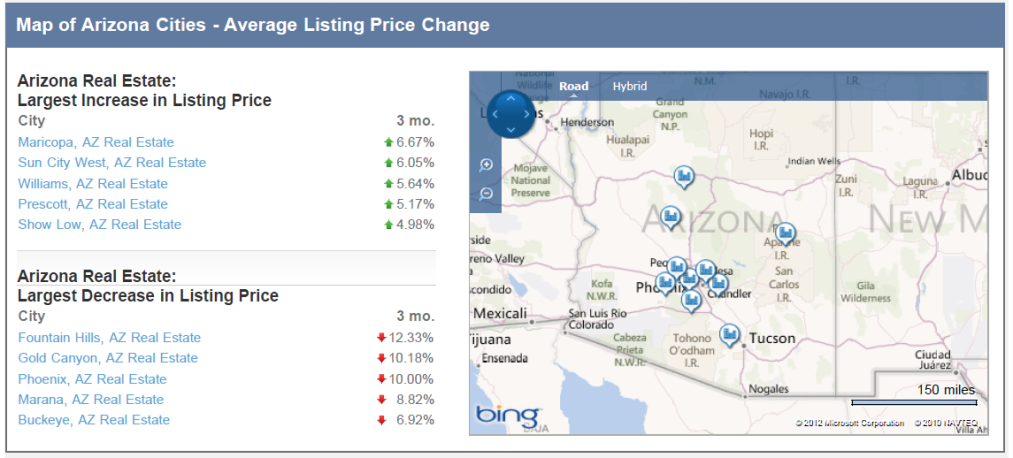Underwater debtors may get tax relief
By Kenneth R. Harney,
Published: August 10
Here’s
some encouraging news for financially stressed homeowners across the
country: The Senate Finance Committee approved a bipartisan bill before
heading home for summer recess that would extend the Mortgage
Forgiveness Debt Relief Act through 2013.
Why
is this important? Several reasons: The law spares homeowners who
receive principal reductions on their mortgages from being hit with
hefty federal income taxes on the amounts forgiven. Without it, millions
of owners who go through foreclosure or leave their homes following
short sales would experience even more financial stress.
Which
has also provided relief to thousands of people who have debt balances
written off as part of loan-modification agreements and is crucial to
the $25 billion federal-state robo-signing settlement with large banks —
is set to expire at the end of December. Some Capitol Hill analysts
predicted that, along with a host of other special-interest tax
benefits, an extension might have trouble making it through the partisan
gantlet in an election year.
But
the Senate committee managed to pull together enough votes Aug. 2 to
pass the debt-relief extension after heavy lobbying by the National
Association of Realtors and the National Association of Home Builders.
The bill, which now moves to the full Senate for possible action next
month, also would extend tax write-offs for mortgage insurance premiums
for 2012 and through 2013, and it would continue some energy-efficiency
tax credits for re modelings and new-home construction.
The
mortgage debt relief extension ultimately could affect millions of
families who are underwater on their loans, delinquent on their payments
and heading for foreclosure, short sales or
deeds-in-lieu-of-foreclosure settlements. Under the federal tax code,
all types of forgiven debt are treated as ordinary income, subject to
regular tax rates. When an underwater homeowner who owes $300,000 has
$100,000 of that forgiven as part of a modification or other arrangement
with the bank, the unpaid $100,000 balance would normally be taxable.
But
in 2007, Congress saw the fast-mounting distress in the housing market
on the horizon and agreed to temporarily exempt certain mortgage
balances that are forgiven by lenders. The limit is $2 million in debt
cancellation for married individuals filing jointly, $1 million for
single filers. This special exemption, however, came with a time
restriction. The current deadline is Dec. 31. Without a formal extension
by Congress, starting on Jan. 1 all mortgage balances written off by
banks would be fully taxable — a nightmare scenario that has had
financially stressed homeowners worried for months.
These
apprehensions were raised even higher when some policy analysts
predicted that a Congress as fractious and dysfunctional as the current
one would never get its act together to pass any tax bills until the
closing moments of the lame-duck session expected after the November
election. Even then, with such issues as the mounting federal debt and
draconian spending cuts scheduled for Jan. 1 taking precedence, smaller
matters such as mortgage debt relief might well be lost in the dust
storms, experts predicted.
A
few Republican policy strategists, including Douglas Holtz-Eakin,
former Congressional Budget Office director and economics adviser to
Sen. John McCain’s presidential campaign, speculated that tea party
freshmen in the House might oppose the debt-relief extension because
they see it as another costly bailout funded by taxpayers. The estimated
revenue cost to the Treasury for a two-year extension is $2.7 billion.
The
mortgage insurance deduction is another key housing benefit that made
it into the Senate committee’s 11th-hour extender bill. Mortgage
insurance generally is required whenever home purchasers make small down
payments, whether on conventional, private-market loans or through
government programs. Under a provision in the tax code that expired this
past December, certain borrowers could write off their mortgage
insurance premiums on their federal income taxes, just as they do with
mortgage interest. To qualify for a full deduction, borrowers could not
have adjusted gross incomes greater than $100,000 ($50,000 for married
taxpayers filing separate returns).
The
Senate’s bill would extend the write-off retroactively to this past
Jan. 1, and would continue it through December 2013. No buyer or owner
who planned to write off premiums during 2012 would be penalized, in
other words, despite the expiration last December.
The
outlook for the extenders: Given the popularity of the housing
deductions and credits, look for supporters to press the full Senate for
early action in September in order to get these issues settled before
Election Day. If there are serious objections in the
Republican-controlled House, however, then all bets are off until the
lame-duck session, when election losers as well as winners get to write
federal tax policy.
Ken Harney’s e-mail address is kenharney@earthlink.net.

